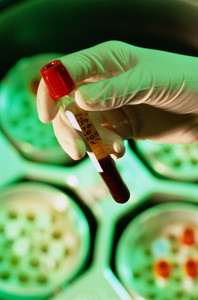Gene Quinn distinguishes facts from fiction on biosimilars on IPWatchdog.com.
According to him, data exclusivity is not the same as market exclusivity. “During a period of data exclusivity, a competitor would be unable to piggyback on the massive investment in R & D made by an innovator to receive approval from the FDA for their ‘copy-cat’ product. Simply put, during the period of exclusivity the FDA may not rely on an innovator’s safety and efficacy data to approve a competitor’s product. Market exclusivity is an altogether different thing – it is the inability of any competitor to enter a specific market. Market exclusivity for biological products would mean that there could be, for example, just one drug to treat leukaemia, one drug to treat diabetes, one drug to treat MS. “This is not the case”, he stresses. “At any moment, hundreds of biotech companies are racing to develop the next wonder drug for any one of these diseases. That situation will not change because of data exclusivity periods. There will continue to be competition among innovative biological products regardless of a data exclusivity period enacted as part of biosimilars legislation”.
According to Mr Quinn, providing innovators with data exclusivity enables them to recoup the investments they made into developing new products and testing product safety and efficacy. “This allows them to continue to invest in new breakthrough medicines, therapies and cures for diseases such as cancer, HIV/Aids and ALS. Competitors are free at any time to conduct their own costly research and development, including clinical trials, and create their own biologicals”, he argues.
Furthermore, Mr Quinn states that it is fiction that 12 years of data exclusivity would extend innovators’ monopoly power. “Data exclusivity does not give it any sort of monopoly”, he writes. “You would be hard pressed to find a term that is used more and understood less than the term ‘monopoly’. “Patents don’t give monopolies, and neither would data exclusivity. If patents gave monopolies then how is it possible that anyone other than Apple could sell a portable MP3 player? Apple has the iPod and iPhone locked up tight, but not so tight that other companies are prohibited from selling similar products. Look at all the iPhone wanna-bes that are on the market now. Seriously! You have to stop thinking that patents grant monopolies. What they do is make it difficult for others to copy an innovation, but if you can make something that does the same thing that isn’t a copy, then patent law does not prevent that”.
He explains that similarly, products that compete with innovative biologicals can still be introduced during the period of data exclusivity. A period of data exclusivity merely means that those who do not innovate cannot piggyback off the hard work of innovators and rely on the research conducted by the innovator company. They must conduct their own safety and efficacy research and testing to obtain FDA approval and, obviously, not infringe the patents owned by the innovator. “So can we please stop using the world ‘monopoly’? No matter how many times it is used it will never accurately describe the protections provided. If you doubt that do a patent search and you will see in every industry numerous patents that all purport to cover similar things. How else, for example, could Microsoft and Apple both have patent portfolios? How else could Motorola and Nokia have patent portfolios? How else could AMD and IBM have patent portfolios? And so on” Mr Quinn states. (see also Minimal 12 years of biologicals data exclusivity required, 12 years exclusivity workable for patients; not anticompetitive and Innovative biologicals development must be preserved)
Reference:
Gene Quinn. Fact vs. Fiction: The Truth on Biologics and Biosimilars. IP Watchdog. 2009 December 6.








 0
0











Post your comment